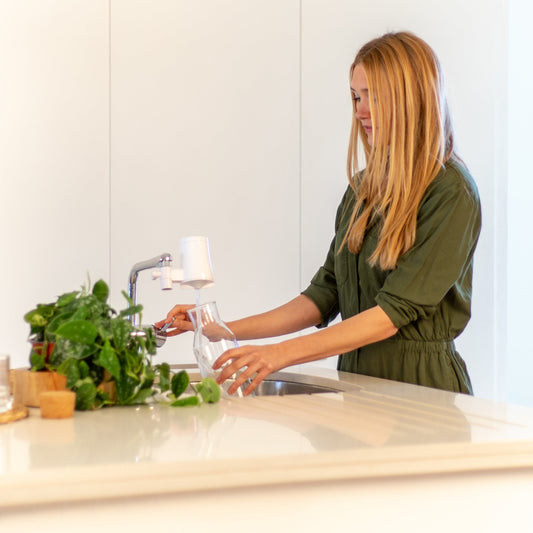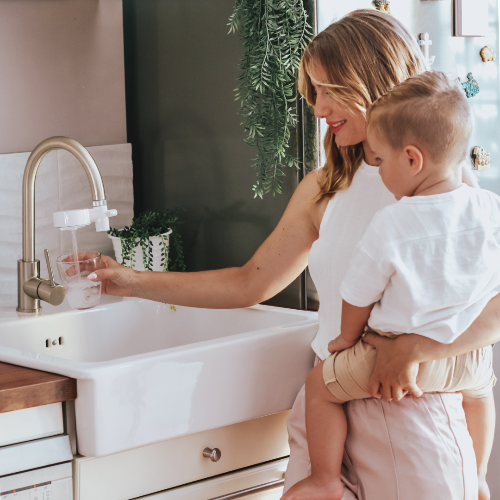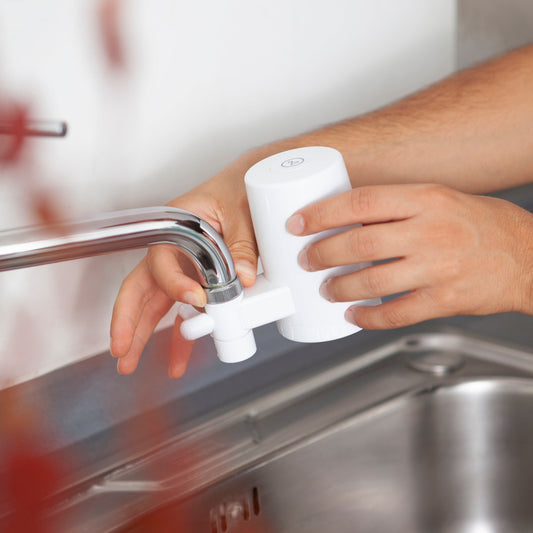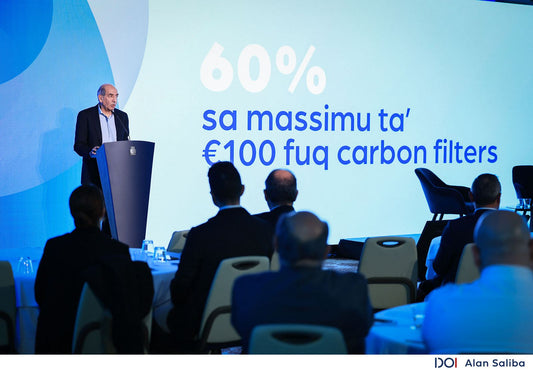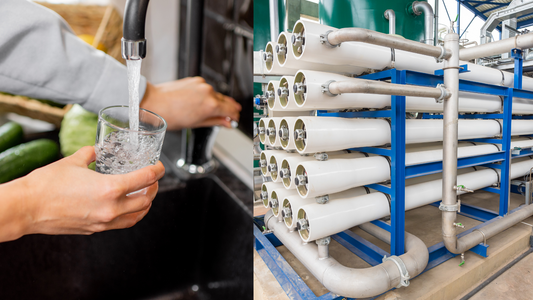
The truth about bottled water in Malta
Share
Table of Contents
- What does it take to produce a plastic bottle?
- What is the difference between tap water and bottled water in Malta?
- Are you concerned about microplastics in bottled water?
- Why do we drink water from plastic bottles?
- What is the bigger picture for bottled water in Malta?
- Is filtered water healthier than bottled water?
- What is the alternative to plastic bottled water in Malta?
We read a lot about how single use plastic bottles such as those used for drinking water in Malta cause pollution and damage the environment, but do we know the whole story about bottled water in Malta; do we know the truth?
In this article we will try and get to the bottom of the story about single use plastic bottles in Malta and see the bigger picture.
What does it take to produce a plastic bottle?
Most plastic water bottles for drinking water are made of PET (Polyethylene Terephthalate) which is made from petroleum products which are modified to make long polymer molecules in a complicated process.
Plastic bottles are made by a two stage Reheat and Blow machine, the first stage is using injection moulding to create a pre-form bottle that can be easily transported empty and then reheated to be blown into a bottle.
It takes twice as much water contained in a plastic bottle to make the plastic bottle in the first place, so in addition to the energy used in the production processes and the transportation, there is also the water used on the process; about 2L for a bottle ready to hold 2L.
In summary, just to make the plastic bottle used for drinking water it takes:
- fossil fuels for the plastic
- fuel for the transport
- fuel and energy for the production process
- water for cooling and production
So bottled water uses up a huge amount of resources to be created.
What is the difference between tap water and bottled water in Malta?
This is a simple question to answer. Bottled water is most likely to be tap water that has been filtered prior to bottling. It is most likely, due to safety reasons, be the same water you have coming out of your tap which has been through a commercial filtering process which removes contaminants, odour and taste from the tap water.
So bottled water is filtered tap water.
Are you concerned about microplastics in bottled water?
There is increasing concern about microplastics in bottled water. In particular here in Malta we often see plastic bottles left out in the sun; do you ever wonder what impact that has on the quality of the water?
There have been studies on bottled water that have found concerning amounts of microplastics in drinking water which are made much worse if you reuse plastic bottles again.
With some scientists suggesting that we ingest over 5g a week of microplastics and increasing concern over the potential health impacts, it maybe time to rethink the use of plastic bottles for drinking water in Malta.
Why do we drink water from plastic bottles?
The bottled water industry in Malta has marketed the safety and taste of the water they sell building on the historical issues with drinking water in Malta. However the water from your tap in Malta meets EU guidelines and has had remarkable improvements with large scale investment by the Water Services Corporation that has raised standards considerably over many years.
This does not suit the bottles water industry in Malta which needs consumers to keep buying their product; and so various marketing efforts have been used to keep the consumer trapped into a buying cycle.
Free water with a certain amount of spend at supermarkets keep the consumer trapped into the cycle, after all who can resist something for free?
And research does show that generally speaking people either don't like the taste or don't trust the water supply, regardless of the fact that Malta's water supply meets all EU requirements.
The bottled water industry builds on these consumer concerns so that families regularly buy plastic bottled water for drinking in Malta, after all selling this at 25c a litre for the cheapest brand for something that costs 0.0014c even after production and shipping costs; this is a high margin business!
Bottled water is drunk because it's convenient and it's marketed to us as a safe alternative to tap water. You can find out more about water delivery in Malta in our detailed article.
What is the bigger picture for bottled water in Malta?
The bigger picture for bottled water consumption in Malta is that this is a consumer demand business where demand is created by marketing and promotion.
Behind all of this is the fossil fuel industry that benefits from the use of petroleum products in the production of plastic. As oil prices fall and demand for fuel slows, the heavy investment in the production of oil has to be paid for in new markets. Plastic is just one of those markets, its cheap and convenient and is growing user of oil; the bottled water industry is a friend to the oil industry.
Plastic clogs our oceans, ends up as microlpastics in our food and water supply and most of the single use plastics that are so good for the oil industry end up in landfill or being incinerated.
Of all the plastic that has ever existed, more than half was produced in the last 15 years and 91% has never been recycled. (The story of plastic.)
Can you imagine a world without single use plastic? Now you see the trap.
Is filtered water healthier than bottled water?
Filtered tap water is a healthy alternative to bottled water especially here in Malta where plastic bottles are no longer even a convenient option with the introduction of the Beverage Container Recycling Scheme (BCRS).
You can read more about why filtered tap water is healthier than bottled water in our detailed analysis.
What is the alternative to plastic bottled water in Malta?
Simple. Stop using plastic bottled water and drink tap water at home. To make sure the water is tasty and free from contaminants use a tap water filter such as the TAPP EcoPro - the only sustainable water filter in Malta.
This one simple action affects the amount of single use plastic generated in Malta; it is a small but important start. We invite you to start today.
Find out more about TAPP Water Advanced Microfiltration
Many thanks to the film "The story of plastic." which explains the plastic pollution cycle and describes the truth about plastic.

